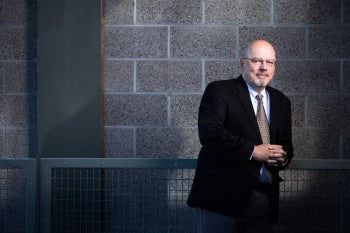ASU historian contributes to key legal move in ballot eligibility case

Image courtesy Pixabay
An amicus brief filed with the Supreme Court of the United States by 25 historians this past week has emerged as a focal point of media attention. The document is a direct response to the unfolding legal drama surrounding the removal of former President Donald Trump from the Republican presidential primary ballot in Colorado by that state’s supreme court. It aims to assist the high court’s deliberations by offering historical context within which to interpret Section 3 of the 14th Amendment of the U.S. Constitution.
Arizona State University Foundation Professor Brooks Simpson is among the group of prominent U.S. historians who have collectively lent their expertise to the document. Simpson, a member of ASU's College of Integrative Sciences and Arts faculty, and his colleagues bring a wealth of knowledge on topics such as the Civil War, the Reconstruction era, and American political and constitutional history.
"As historians, our duty is to illuminate the past to guide the present,” Simpson said. “In contributing to the amicus brief, we aim to provide a comprehensive historical context to aid the court's understanding of Section 3 of the 14th Amendment by highlighting the original intent of the framers of that amendment.”
Drawing on historical evidence from congressional debates, contemporary information and precedents related to historical figures and the use of the disqualification clause, Simpson and his colleagues argue that Section 3 of the 14th Amendment covers the office of the president and that its implementation does not require additional acts of Congress. The clause bars individuals who have taken an oath to support the Constitution from holding public office if they have "engaged in insurrection or rebellion" against the United States government.
Watch
ASU Foundation Professor Brooks Simpson discusses the historical context of a pivotal amicus brief related to ballot eligibilty on Arizona PBS' "Horizon."
The Colorado Supreme Court’s ruling to remove Trump from the ballot in Colorado and disqualify him from running for president in the state is rooted in the aftermath of the 2020 presidential election. Colorado officials, citing concerns related to the events of Jan. 6, 2021, namely the Capitol insurrection, sought to disqualify individuals who were deemed to have played a role in or supported the insurrection from appearing on the state's ballot.
The move has sparked legal debates, leading to the filing of additional amicus briefs by Trump’s political allies who disagree with the Colorado court ruling. Simpson believes that historians have to explore and interpret the historical record dispassionately from a disinterested perspective. Still, he emphasizes that the brief he and his colleagues filed is not just an academic exercise.
“History can be a powerful tool to assist us to achieve justice,” he said. “Our collective expertise was deployed with a commitment to truth and accuracy, ensuring that the court is well-informed as it navigates the complexities of this crucial constitutional matter.”
More Arts, humanities and education

ASU alumna makes her way back to the ASU Gammage stage for '¡azúcar!'
As the Los Angeles-based CONTRA-TIEMPO dance group prepares for its upcoming production “¡azúcar!” at ASU Gammage, for one member of the dance group it is also a nostalgic return to her home.Born in…

ASU FIDM professor wins international award for fantastical, sustainable creation
The horror of an ailing Earth inspired an Arizona State University fashion professor to create a fantastical garment out of sustainable, re-used and found materials that won a prestigious…

ASU workshop trains educators, professionals from marginalized communities in disaster science
As devastating as hurricanes can be to anyone caught in their paths, they strike marginalized communities even harder.To address this issue, a fund named for a former Arizona State University…
